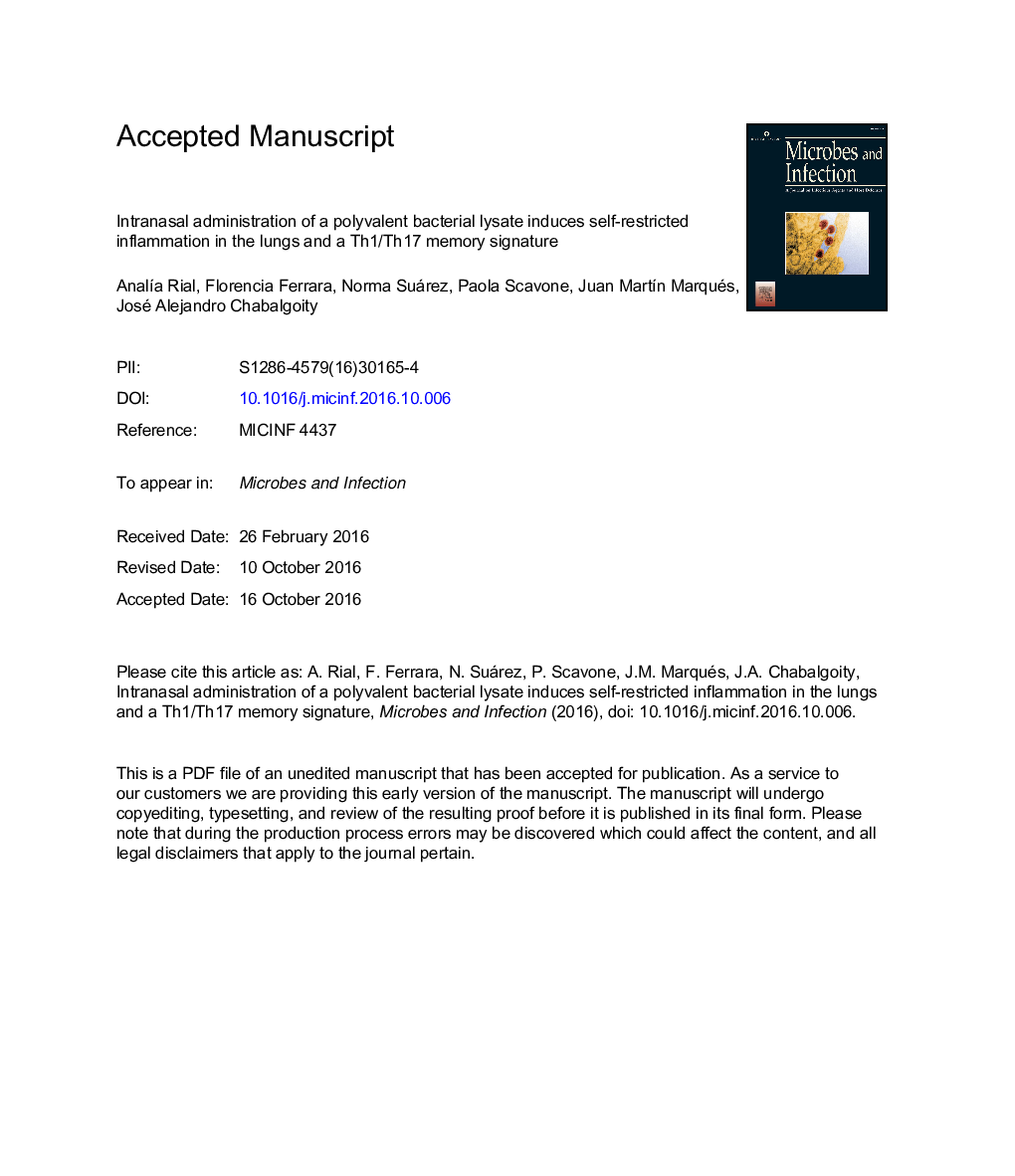| Article ID | Journal | Published Year | Pages | File Type |
|---|---|---|---|---|
| 5673464 | Microbes and Infection | 2016 | 33 Pages |
Abstract
Respiratory tract infections are among the most frequent infections in humans causing millions of deaths especially in children and the elderly. Antibiotics and vaccines are the main available tools of control, but resistant strains are continuously arising and available vaccines only account for few of many pathogens involved. Non-specific immunotherapies are an emerging alternative to induce protective immunity at the airways. Mucosally administered polyvalent bacterial lysates (PBLs) have been widely used for decades for prevention of respiratory diseases, but the bases of their proposed therapeutic effectiveness are still controversial. Here, we show that PBL engages a pro-inflammatory gene expression program in macrophages and epithelial cells, induces an acute lung inflammatory response and elicits full protection against pneumococcal pneumonia. Chronic lung inflammation may have pathological consequences, so the capacity to regain local homeostasis after treatment is central. We found that local inflammation is fully resolved and 30 days after treatment lungs become undistinguishable from naïve mice. Nevertheless, this process leaves an immunological imprinting with a Th1/Th17 memory phenotype that may be a marker of the protective immunity elicited. Increasing our understanding of the mechanism of action of PBLs may improve the efficiency of these immunotherapies and expand their range of action.
Related Topics
Life Sciences
Immunology and Microbiology
Immunology
Authors
AnalÃa Rial, Florencia Ferrara, Norma Suárez, Paola Scavone, Juan MartÃn Marqués, José Alejandro Chabalgoity,
